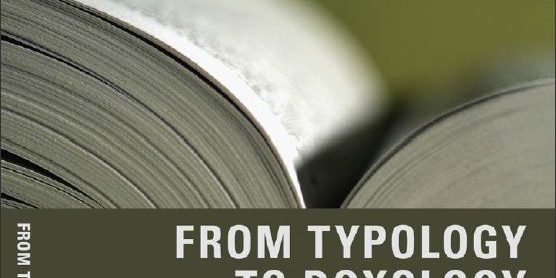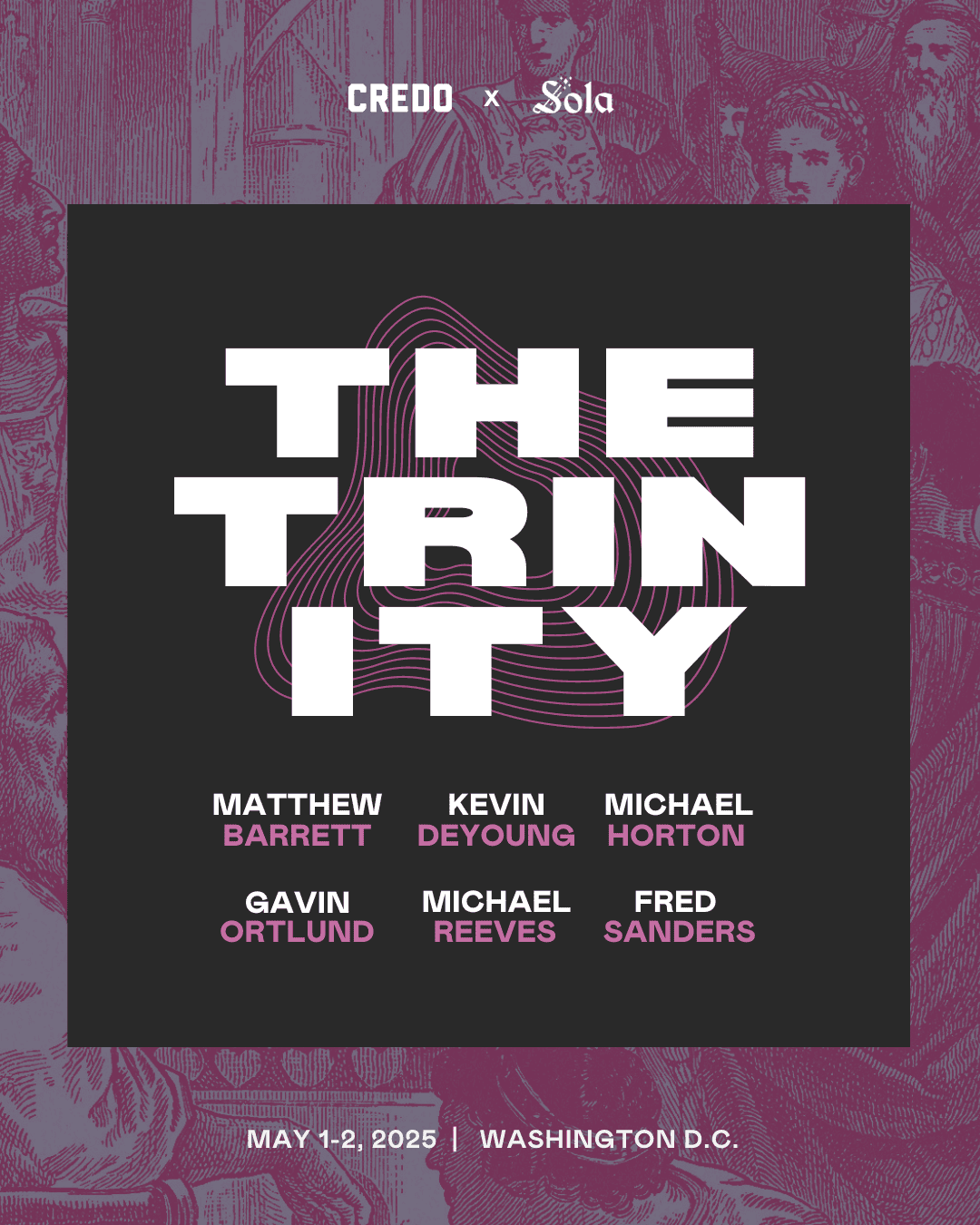
A Conversation with Andy Naselli
Interview by Matthew Claridge–
If you are a close follower of the Credo blog, you will notice a regular feature we cover is the “NT use of the OT.” Through Ardel Caneday’s tremendous series of posts, we are learning that this is not a niche area of NT studies but something that permeates and ultimately justifies the claims of the NT with regard to Christ and his work. “The NT use of the OT” continues to be a wonderfully rich field for pastors and theologians to grow in their understanding of how God transforms acorns into oaks (and sinners into saints) through the unfolding plot of redemption history. Andrew David Naselli has given us another helpful tool for tilling that ground in From Typology to Doxology: Paul’s Use of Isaiah and Job in Romans 11:34-35. Use every tool in your toolbox.
What is typology, and what is its role in Romans 11:34–35?
It has been said that the Bible is like a deep, broad body of water, shallow enough for a lamb to wade but deep enough for an elephant swim. Some parts are simple and straightforward, and others are not. Romans 9–11 is not. It is logically dense and theologically weighty. And it ends with an often-overlooked typological connection to Isaiah and Job.
David Baker’s working definitions are helpful:
A type is a biblical event, person or institution which serves as an example or pattern for other events, persons or institutions.Typology is the study of types and the historical and theological correspondences between them.The basis of typology is God’s consistent activity in the history of his chosen people.
When Paul quotes Isaiah and Job in Romans 11:34–35, he includes their larger OT contexts. Those contexts reveal a remarkable typological connection between the two OT passages and the end of Romans 11:
1. The subjects in all three contexts (Job and Israelites) have been experiencing God’s blessing.
2. But God takes that away to some degree in a way that they think is unfair.
3. They question God’s righteousness while asserting their own.
4. Then God gives them revelation that they find difficult and unsatisfying.
5. But they must repent of their flawed view of God and themselves and trust God.
6. Then they experience God’s restored blessing to an even greater degree and in an unexpected way.
7. God’s salvation-historical plan demonstrates that he is wise, kind, and sovereign.
Why should busy pastors read a scholarly volume like this? What’s its cash value?
Three reasons: it can serve them in their (1) exegesis, (2) biblical theology, and (3) preaching. Before I briefly unpack that, here’s the book’s basic structure:
1. Context of Rom 11:34–35 (which quotes Job and Isaiah)
2. Context of the passages in Job and Isaiah
3. Textual issues
4. Relevant uses of the OT passages in Jewish literature
5. Paul’s hermeneutical warrant for using the OT in the NT
6. Paul’s theological use of the OT in the NT
Those six steps generally follow the approach in Beale and Carson’s Commentary on the New Testament Use of the Old Testament.
Reason 1: Exegesis (Steps 1–2). The book surveys the theological messages of Romans, Job, and Isaiah (with special reference to Romans 9–11, Job 38–41, and Isaiah 40). The chapter on Job includes a paraphrase of the book’s lengthy dialogue.
Reason 2: Biblical theology (Step 5). The book surveys different ways that the NT uses the OT and explores significant organic connections between Romans, Job, and Isaiah.
Reason 3: Preaching (Step 6). The chapter on how Paul uses Isaiah and Job theologically demonstrates how practical the study is. The outline for that chapter is close to a sermon outline:
1. God Is Incomprehensible: His Knowledge Is Deep (Romans 11:34a)
1.1. Humans Cannot Understand Everything
1.2. God Is Not Obligated to Explain Anything
1.3. Christians Must Humbly Believe and Cherish What God Has Revealed
1.4. God Deserves Praise for What He Does and Does Not Explain
2. God Is Without Counselors: His Wisdom Is Deep (Romans 11:34b)
2.1. Humans Should Not Try to Give God Advice
2.2. God Deserves Praise for Not Needing Advice
3. God Is Without Creditors: His Riches Are Deep (Romans 11:35)
3.1. Humans Should Not Try to Place God in Their Debt
3.2. God Deserves Praise for Not Owing Anything to Anyone
Cash Value. The cash value comes primarily in steps 5 and 6. But its value is much deeper than the application-level of this particular text (Romans 11:34–35). Each time you deeply study Scripture, it shapes how you understand its organic connections and how you understand God and his grand plan.
Should we emulate how the New Testament authors use the Old Testament? What are some suggestions for better grasping this?
Yes, we should emulate their approach. I teach a graduate course called “The New Testament’s Use of the Old Testament,” and the required reading includes this book and two articles. They are excellent entry-points to the discussion:
D. A. Carson and G. K. Beale’s 6-page “Introduction” to Commentary on the New Testament Use of the Old Testament.
Three Views on the New Testament Use of the Old Testament (ed. Kenneth Berding and Jonathan Lunde). This is another helpful volume in Zondervan’s Counterpoints series. The introduction and conclusion are especially helpful surveys.
D. A. Carson’s 44-page article “Mystery and Fulfillment: Toward a More Comprehensive Paradigm of Paul’s Understanding of the Old and New.” I’ve worked through this five or six times, and it serves me so well with each successive reading.
Andrew David Naselli (PhD in Theology, Bob Jones University; PhD in New Testament Exegesis and Theology, Trinity Evangelical Divinity School) is research manager for D.A. Carson and administrator of Themelios. Andy is a member of Grace Bible Church in Moore, South Carolina. He blogs over at andynaselli.com.

